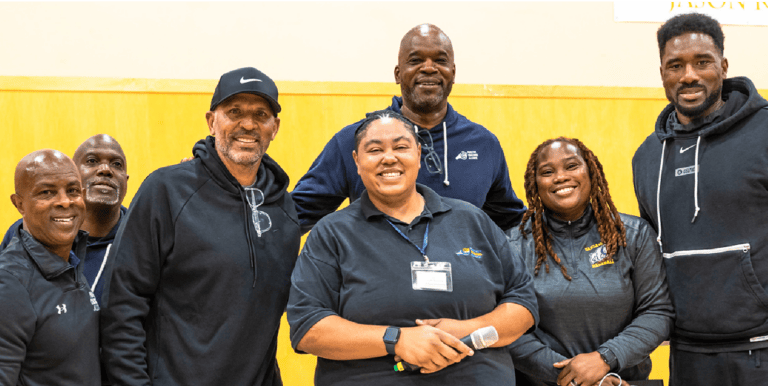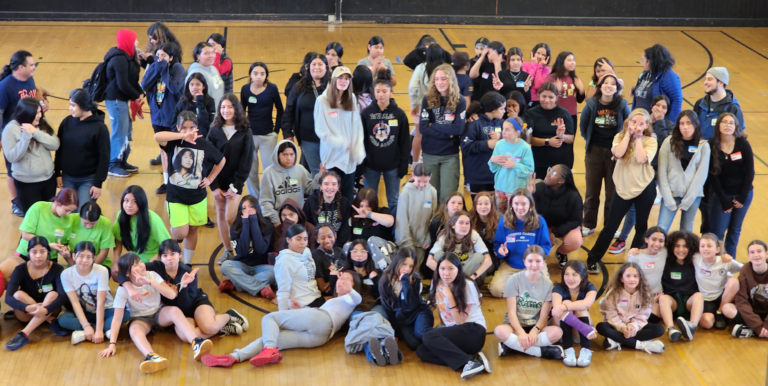PCA PARTNER PORTAL
What to Expect
Throughout your partnership, please refer to various sections of this site as your guide to help you implement a Positive Coaching culture in your organization or school. From workshop preparation to off-season communications to problem-solving ideas and articles on topics facing youth sports leaders today, we've got you covered!
GETTING STARTED WITH YOUR PARTNERSHIP
LEarn MorePREPARING FOR YOUR WORKSHOP
LEarn MoreBEYOND YOUR WORKSHOP
LEarn MorePCA Resources
Latest Updates

PCA Colorado Update Brought to You by Rocky Mountain Hospital for Children
Sep 3, 2024 |

Oakland Coach Symposium Recap
Aug 29, 2024 |
How can we go about mandating?
DOUBLE-GOAL COACH®: Coaching for Winning and Life Lessons
PCA’s Partnership Managers and Program Managers can explain the value of mandatory PCA Training and help you draw coaches to the Training. They can provide examples of what has gone right when Training is mandated and what has gone wrong when it is not. They can explain how to attract coaches investment with PCA to that end will succeed only if you get as many people as possible onto the same page, understanding and enacting your organizational values. Our Program Managers are here to support those efforts.
Who are the trainers that will deliver my workshops?
OUR TRAINERS
All of the 150-plus PCA Trainers have a deep background in sports as athletes, parents, coaches, sport psychologists, educators or in all of those areas. Many are full-time professionals in at least one of those areas, who just want to give back to youth sports. We also have several former professional athletes within our Trainer corps as well as past Division I collegiate coaches. With very few exceptions, the bare minimum for a Trainer to conduct a Double-Goal Coach® workshop is three years of coaching at a high school level or above.
How do we know if our partnership with PCA is having an impact?
Stay Connected
We strongly suggest you conduct surveys within your school or organization to ensure player and parent satisfaction with coaches, and we provide tools to help you do just that. Our workshops and follow-up materials specifically outline optimal behaviors, so one way to determine impact is to document your baseline in those areas and keep careful track by watching games and practices and analyzing the player/parent evaluations to measure changes in behavior and attitudes over time. Behavior change will not happen overnight. That’s one reason we recommend and incentivize partners to join us for three years at a time.
volunteers already do so much, how can we add workload?
just Two hours can make all the difference
If they are truly committed they want to do the best they possibly can in service of the youth in their community. No matter how busy or taxed your volunteers may seem, a two-hour workshop that can change their lives — and the lives of the youth your organization serves — is worth it. Even in the case of a shortage of coaches, you should beware of the coach who will not take two hours for a workshop that ensures they can appropriately serve the youth entrusted to your school or organization.
Whom should we invite to our Leadership Workshop?
KEY STAKEHOLDERS
Typically, attendees at a Leadership Workshop include the board of directors of a youth sports organization, sometimes extending to division/age group representatives even if they are not formally board members. You may also want to include several parents or coaches who are seen as leaders in your school or organization. If you have a director of coaching (common for soccer clubs) or equivalent, he or she should attend the workshop.
For school settings, invite the athletic director; principal; other key cultural collaborators — even outside of athletics, such as a dean of students or disciplinary officer; one or two booster club representatives; and a parent representative or PTA/PTO official.
